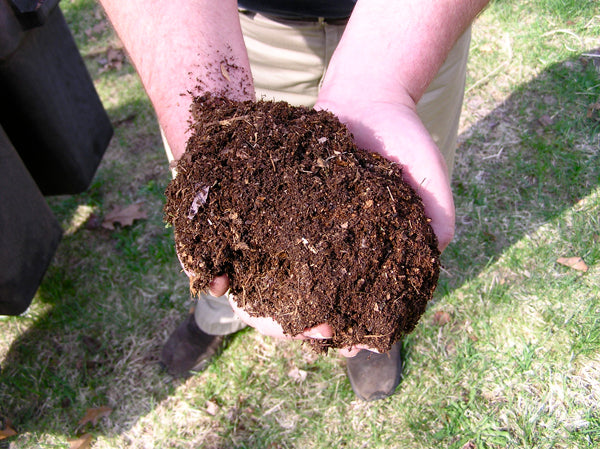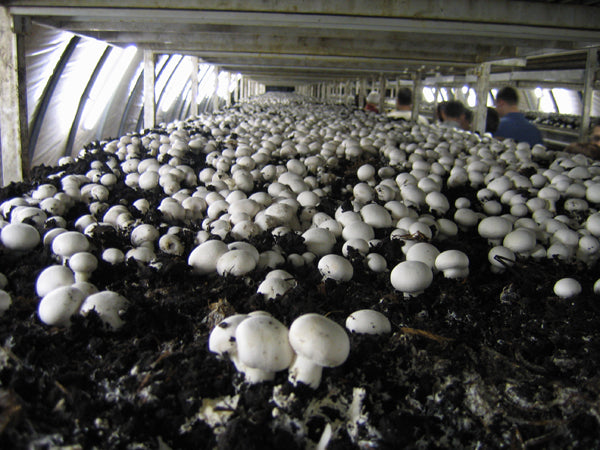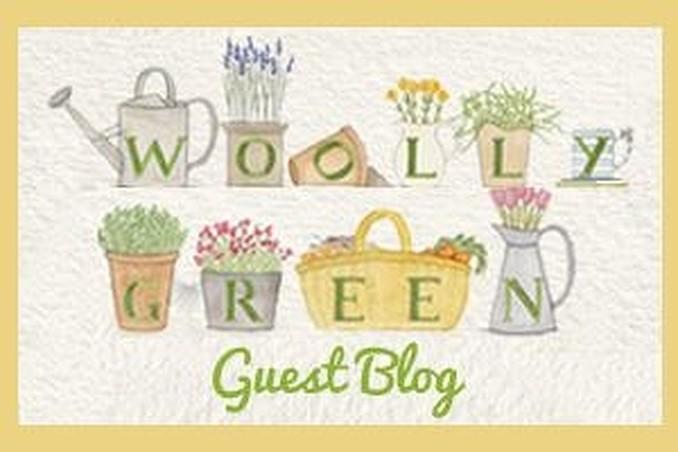Where there's muck
Every year (usually a bit earlier than this) I get on the blower to my pal Mark who works in the local council recycling depot. And he asks me how much muck I’d like. And my other half doesn't mind, in fact he encourages me!! A ton costs £27 (or £13.50 for the allotment) and I have two for my average sized town garden.
Yes, spreading muck is the top recommended spring gardening activity. ‘Mulching’ as it officially known is usually used to improve the soil around plants, but it also gives your garden a neat, tidy appearance and can reduce the amount of time spent on tasks such as watering and weeding (yippee!!)
So that’s my idea for a perfect dirty weekend ;-)

Types of mulches that you can use in the garden
Biodegradable mulches can also be called compost – but this is quite different from compost for potting that you buy in bags. Basically, it’s rotted organic material that you put on soil to improve it. There are several kinds, and they do different things, so here’s a quick guide to the basics.
Garden compost – this is the stuff you make yourself out of rotted stuff from the garden and vegetable waste from the kitchen. Great for the fruit and veg patch. Apply two barrow loads to 10 sq m of garden twice a year.
Leaf Mould - Really easy to make with no special equipment and there’s no shortage of leaves. Leaf mould can be used for pretty much everything, as a mulch soil conditioner, potting mix or seed compost. It’s low enough in nutrients so it won’t scold tender seedlings but can dramatically improve soil structure and boost its water retention. Put about 5 -8cm on top of your beds preferably when the soil is wet and warm.
Soil improver - which will improve soil structure and enhance the soils drainage characteristics and air and water holding capabilities, and significantly increase soil fertility just because the roots can get to nutrients more easily. You can probably buy it from your local council as most make it from green recycling, or if you’re lucky get it for free.
Mine sell it by the back as well as the truck load for £1 a bag. Interestingly they haven’t stipulated the size of the bag, so you can always take those nice big blue Ikea ones. Rowlawn also have a fantastic top-rate soil improver, which can be delivered direct to your door.
Mushroom compost - a by-product of mushroom farming, it has a high organic matter content so it’s really good for improving soil and mulching. You’ll need a barrowload for 10 sq m of garden in the growing season.

Seaweed - it’s a bit stinky, but if you live near the seaside, it’s easily available and works a treat. Full of goodness and if you have any left over you can fry it if you like, not to my taste personally.
Chicken manure – is a very good non-chemical source of Nitrogen, which plants need for leafy growth. It’s is bought in pelleted form, because it’s sterilised in processing and it can carry some pretty nasty bacterial, but if you happen to know a friendly chicken farmer, make sure that it’s really well rotted on the compost heap in the ratio of a 5cm layer for every 15cm of other composting material for several months.
Stable manure – dung from horses usually mixed with straw, but make sure it’s well rotted down, because it will really ‘burn’ the plants but also you’ll have field weeds from your garden for evermore and you’re neighbours won’t speak to you for months! Apply 1-2 barrow loads for every 5sq m.

Mulching really is an essential job to be done to keep your garden thriving. Each type of mulch will be suitable for different plants, fruit and vegetables so make sure that you research the plant and what sort of mulch is right for them. Why not have a dirty weekend yourself? After all, they do say “Where there’s muck there’s brass.”
For more gardening tips from our guest blogger check out the other guest blog posts here.

Where there's muck by Waltons Web Ltd and Wooly Green is licensed under a Creative Commons Attribution-NonCommercial-ShareAlike 4.0 International License.
Based on a work at /.




